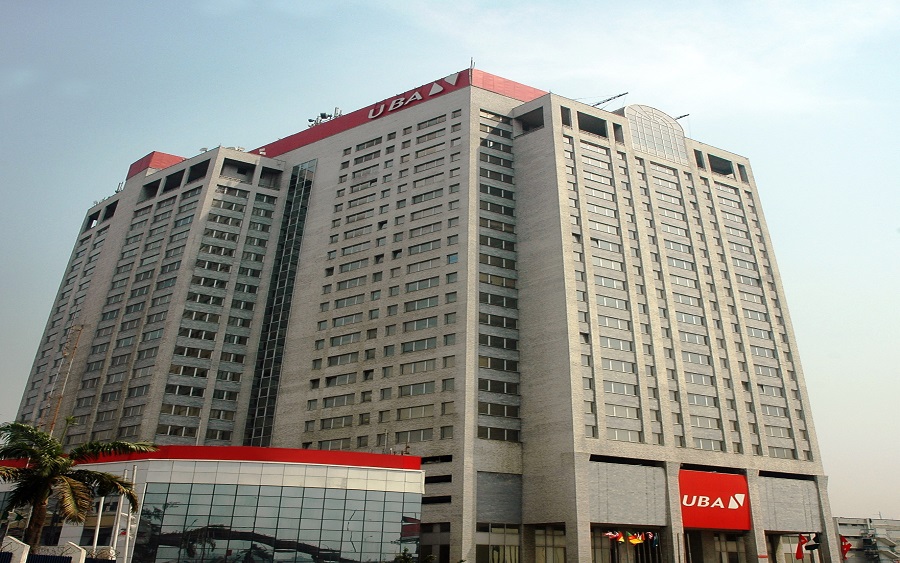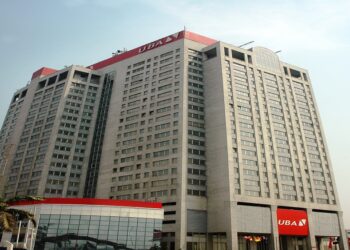United Bank for Africa Plc recently released its audited results for the year ended December 31, 2021. Despite a challenging operating environment during the year which significantly exacerbated the credit risks of loans and advances across the industry, and multiple devaluations of the naira, UBA’s performance year-on-year and overall, was much improved.
The performance was however not totally unexpected given the trend from its unaudited First, Second, and Third Quarter Results. The Bank’s gross earnings came in at N620.4 billion compared to N559.8 billion in 2019, a 10.8% YoY growth.
This was on the back of a 24% YoY growth in loans and advances to customers and the attendant interest income earned from. Interest expense was also driven down because of a decline in interest expenses on customer deposits which was policy-driven by the Central Bank of Nigeria.
READ: UBA posts N77.1 billion Profit in 9M 2020
Profit Before Tax, therefore, grew to ₦131.9 billion, compared to N111.3 billion in 2019 (18.5% YoY growth) while Profit After Tax grew to N113.8 billion in 2020, a 27.7% YoY growth, compared to N89.1 billion in 2019. Other improvements were in the 37.0% YoY growth in its Total Assets of N7.7 trillion, compared to N5.6 trillion in 2019, and customer deposits growth to N5.7 trillion, compared to N3.8 trillion as of 2019 representing 48.1% YoY growth.
The Bank played heavily to its strengths in achieving this result including maintaining;
- (i) a good liquidity profile with the Bank’s ratio of net liquid assets to deposits at the reporting date being 44.30% (2019: 43.99%);
- (ii) a good liability generation strategy that targeted low lost retail deposits;
- (iii) a good capitalization for current business risks with its shareholders’ funds rising by 21.1% YoY to N724.1 billion compared to N597.98 billion in 2019
- (iv) its a Pan-African franchise.
READ: Deputy Managing Director of UBA Plc purchases additional 3.22 million shares
The performance notwithstanding, several weaknesses were observed from its results particularly stemming from its complex structure, the sustainability of its performance over time, as well as the underlying numbers.
UBA is a Nigerian pan-African financial services group headquartered in Lagos with subsidiaries in 20 African countries and offices in London, Paris, and New York. Several of its subsidiaries are however loss-making, or at best, make marginal profits compared to capital employed. For example, in 2020, UBA Mali Limited (owned 100% since 2017), UBA Mozambique Limited (owned 96% since 2011), and UBA UK Limited (owned 100% since 2012) all made losses after tax.
In 2019, UBA Mali Limited, UBA Mozambique Limited, UBA Guinea Limited, and UBA Congo DRC Limited were loss-making while UBA Tanzania and UBA UK made marginal profits.
READ: Secret behind MTN’s blistering performance
Secondly, UBA Nigeria’s performance continues to dominate group performance despite a concerted effort by the Bank to increase its footprints across the African Continent. Indeed, it appears as if the growth in its African footprint comes with an increase in the performance of its Nigerian segment of the bank performance.
For example, the group’s Profit Before Tax was N113.8 billion with the Nigeria segment contributing N94.8 billion of that amount while the other subsidiaries in the other countries where UBA has a presence, contributing N19 billion with the loss-making subsidiaries worsening the performance.
UBA UK Limited in particular, made a loss after tax of over N1.4 billion. UBA Nigeria accounted for 68% of the UBA Group’s total assets and contributed 73% to the overall Group’s pre-tax profits for the financial year to December 31, 2020. To put this in perspective, a typical tier 2 Nigerian Bank will make more than N19 billion in PAT in one year. It then begs the question why the rush for African expansion with the nature of returns on equity and returns on capital employed from this venture? The answer probably lies with its history and vision of being a pan African bank.
In terms of asset quality, UBA’s total assets grew by 37% year-on-year to approximately N7.7 trillion as of 31 December 2020 compared to N5.6 trillion as of 2019. This growth in total assets was driven by deposit mobilization increase to N5.7 trillion in 2020 compared to N3.8 trillion in 2019 (a 48.1% growth YoY) with most being low-cost deposits, and an increase in loans to support governments, customers, and their businesses.
Despite this asset growth, however, loan loss allowance grew by 29% from N86.14 billion in 2019 to N111.35 billion in 2020. Impairment charges also significantly grew by 47.5% to N27 billion in 2020 compared to N18.3 billion in 2019, suggesting an increase in non-performing or sub-standard loans.
This is not immediately obvious as non-performing loan ratios are a function of the total amount of outstanding loans in the bank’s portfolio. Thus, while loan loss allowance and impairment charges for credit losses grew in 2020 relative to 2019, the NPL ratio declined to 4.7% in 2020 (5.3% in 2019) driven by the significant growth in the bank’s loan book and payment of past-due obligations.
Finally, Eligible Tier 1 capital stood at N449 billion as at 31 December 2020, higher than the minimum requirement of N50 billion for Nigerian banks operating with international banking licenses. In addition, the Bank’s capital adequacy ratio computed in line with Basel II accords remained acceptable at 22%, above the regulatory minimum of 15% for international banks (although the Bank’s capital adequacy ratio was 24% in 2019 and is indicative of an increase in the amount set by the bank for credit risk, market, or operational risk). We expect UBA’s capitalization to remain adequate in view of the Bank’s current business risks.
The Bank’s earnings per share of N3.20 is a 26.8% growth compared to N2.52 in 2019. Subject to approval at the upcoming AGM, UBA has proposed a final dividend of 35 kobo for every 50 kobo ordinary share, bringing the total dividend for the financial year ended December 31, 2020, to N0.52.





















You guys have to be careful with your reporting because some of the stuff you reported here are totally and completely false. For example, you said that “the group profit before tax was 113 billion naira with the nigerian segment contributing 94.8 billion”
This is obviously false because UBA profit before tax is 131.9 billion naira not 113 billion naira like you guys reported.
You also wrote that “UBA nigeria accounted for 68% of the UBA’s group total assets and contributed 73% to the overall group pre tax profit for the financial year dec 31, 2020.
Again, this is another falsehood because I remember very well that UBA’s subsidiaries contributed almost 50% in the financial year 2019. I also remember proshare reporting a few days ago that the african subsidiaries made more money than nigerian UBA. So, where are you guys getting your numbers from?
And what if 3 out of 24 subsidiaries are not making money? That is actually a very good percentage as far as I’m concerned. I don’t think that the african subsidiaries of UBA have been consolidated yet. My hunch is that, that will be their next phase of expansion.
Year ended should be December 31, 2020 and not 2021.